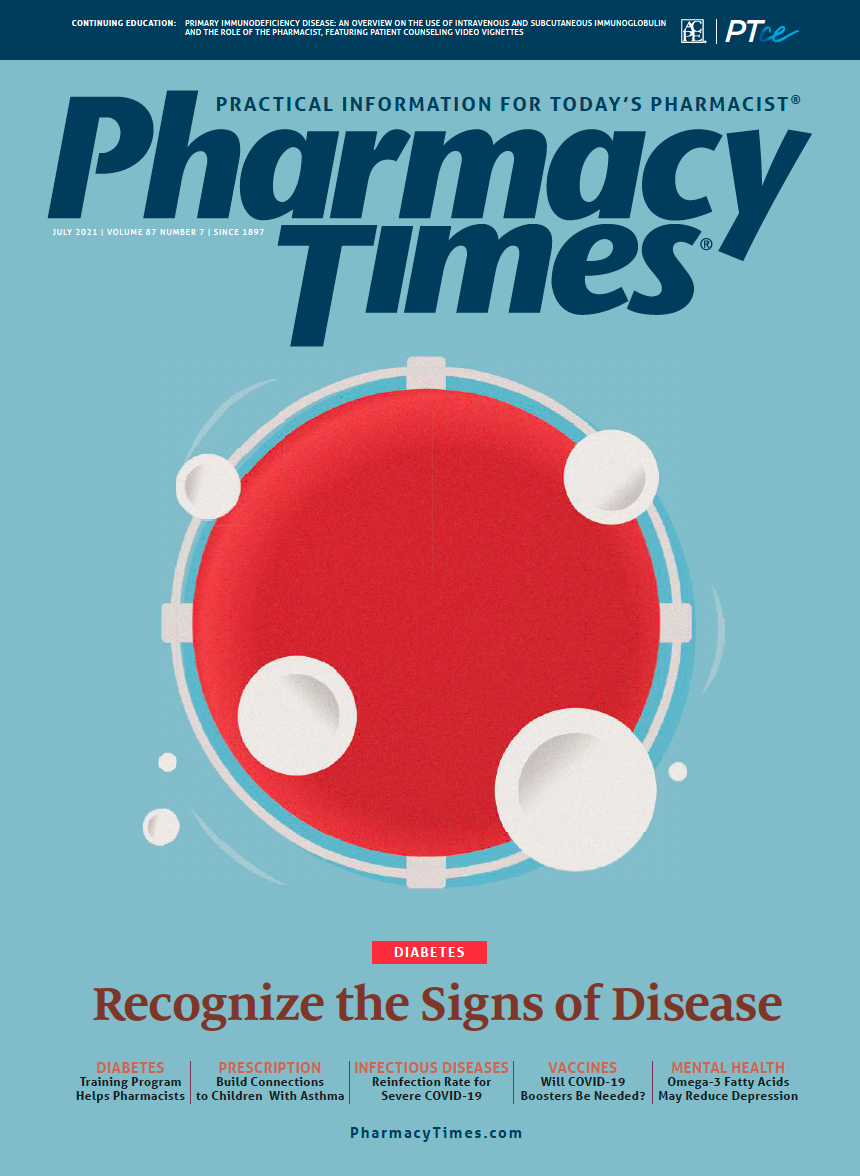Publication
Article
Pharmacy Times
UV Protection: Don’t Let Patients Feel the Burn
Author(s):
Many individuals underestimate the importance of protecting their skin from the sun.
Excessive exposure to UV radiation from the sun not only causes sunburn but also contributes to cataract development and premature aging and wrinkling of the skin.1
Study results have confirmed that carcinoma of the skin is strongly correlated with chronic, excessive, and unprotected sun exposure.1 The American Academy of Dermatology (AAD) indicates that skin cancer is one of the most common cancers in the United States; each day more than 9500 individuals receive a diagnosis.2 Although all types of skin complexions can experience sunburn, certain risk factors may put some individuals at greater risk, such as:1
- being a child or infant, as their skin is more sensitive than that of adults;
- getting sun exposure during the peak hours of 10 am to 4 pm without using UV protection;1
- having a fair complexion; and
- using sun lamps or tanning beds
Certain medical conditions, such as lupus, psoriasis, and rosacea, can also increase the risk of photosensitivity, an immune system reaction that is triggered by sunlight.1 Pharmacists can identify patients at risk for possible photosensitivity reactions due to the use of certain pharmacologic agents, such as antidepressants, antihistamines, chemotherapy agents, estrogens, nonsteroidal anti-inflammatory drugs, quinolones, some diuretics, statins, sulfonamides, and tetracyclines.
Recent News
The ADD conducted a survey in April 2021 of 1000 adults.3 The results showed that an estimated 33% of those surveyed lacked a fundamental comprehension of skin cancer and sun protection.
The results also showed that 53% of adults surveyed were unaware that shade can protect them from the sun’s harmful UV rays. In addition, 47% either incorrectly thought or were unsure that having a base tan prevents sunburns; 35% either incorrectly thought or were unsure that as long as an individual does not burn, tanning is safe; and 31% were unaware that tanning causes skin cancer.3
According to the results from another recent survey conducted by the AAD of 1000 adults in the United States, although 80% of respondents were aware that sunscreen should be reapplied every 2 hours, few actually follow the recommendation.4 The survey results showed that just 33% typically reapply sunscreen every 2 hours, and 42% either tend to not reapply sunscreen at all or reapply it only when they get wet. Also, an estimated 30% apply sunscreen just to their faces instead of also applying it to other areas of the body exposed to the sun, such as arms and legs.4
Findings from a recent study published in JAMA Dermatology stated that the sun protection factor (SPF) is the most important criterion when selecting a sunscreen. And dermatologists indicate that there are 3 key factors when selecting a sunscreen: broad spectrum protection, a SPF of 30 or greater, and water resistance.5
The results of a study conducted by online pharmacy Valisure showed that 27% of sunscreen samples tested contained benzene, which is a carcinogen, and some batches had up to 3 times the conditionally restricted concentration limit of 2 ppm allowed by the FDA.6,7 Elevated levels of benzene were detected in 78 sunscreen and after-sun products, according to the report.6 A recent publication on the website Healthline.com indicated that the Skin Cancer Foundation is actively monitoring this issue and working with officials in the pharmaceutical industry to learn more about the issue.6 In an official statement responding to the findings, the foundation said that Valisure’s “findings are unrelated to the active ingredients in sunscreens, and their findings are not specific to any 1 brand or type of sunscreen.”6 The foundation also noted: “After serious consideration, we have decided not to remove products from our product finder, as the issue affects certain batches of products. We encourage consumers to check Valisure’s list against our product finder. There are many sunscreen products available that have not been affected.”
Valisure said in a statement, “It is important to note that not all sunscreen products contain benzene and that uncontaminated products are available, should continue to be used, and are important for protecting against potentially harmful solar radiation.”6,8 The statement also indicated that Valisure is asking for a recall of the contaminated batches and requesting that the FDA better define limits for benzene contamination in cosmetics and drugs.8
In response to the report, the AAD said in a statement that individuals should continue to incorporate sun protection measures into their daily routines and should consult a board-certified dermatologist if they are concerned about the ingredients in a sunscreen.9
Role of the Pharmacist
During counseling, patients — especially those at greater risk for photosensitivity, — should be advised to always use sunscreen and other UV protective strategies, such as wearing long-sleeve shirts, sunglasses, and wide-brim hats when outdoors, especially during peak sun hours or for long periods. The AAD recommends using water-resistant sunscreen products with an SPF rating of 30. The AAD offers an excellent patient teaching tool that pharmacists can use when counseling patients about the proper selection and application of sunscreen products.10
Yvette C. Terrie, BSPharm, RPh, is a consulting pharmacist and a medical writer in Haymarket, Virginia.
REFERENCES
- Crosby K. Prevention of sun-induced skin disorders. In: Krinsky D, Ferreri S, Hemstreet, et al, eds. Handbook of Nonprescription Drugs. American Pharmacists Association; 2015.
- Skin cancer. American Academy of Dermatology. Updated June 1, 2021. Accessed June 23, 2021. https://www.aad.org/media/ stats-skin-cancer
- New American Academy of Dermatology survey finds one-third of Americans fail basic quiz on skin cancer and sun exposure. News release. American Academy of Dermatology. April 27, 2021. Accessed June 14, 2021. https://www.aad.org/news/aad-survey-finds-americans-fail-skin-cancer-quiz
- Confused about sunscreen? New American Academy of Dermatology survey shows Americans need a refresher on sunscreen application and SPF. News release. American Academy of Dermatology. May 25, 2021. Accessed June 14, 2021. https://www. globenewswire.com/en/news-release/2021/05/25/2235866/0/en/ Confused-About-Sunscreen-New-American-Academy-of-Dermatology-Survey-Shows-Americans-Need-a-Refresher-on-Sunscreen-Application-and-SPF.html
- Tribby CP, Julian AK, Perna FM. Perceived usefulness and recall of sunscreen label information by consumers. JAMA Dermatol. 2021;157(5):573-576. doi:10.1001/jamadermatol.2020.5394
- Pugle M. Should you worry about carcinogen benzene found in some sunscreens? Healthline. June 6, 2021. Accessed June 14, 2021. https://www.healthline.com/health-news/should-you-worry-about-carcinogen-benzene-found-in-some-sunscreens
- Koeing D. Benzene found in some sunscreen products, online pharmacy says. MDedge. June 1, 2021. Accessed June 14, 2021. https://www.mdedge.com/dermatology/article/240882/ mixed-topics/benzene-found-some-sunscreen-products-online-pharmacy-says
- Valisure detects benzene in sunscreen. News release. Valisure. May 25, 2021. Accessed June 14, 2021. https://www.valisure.com/ blog/valisure-news/valisure-detects-benzene-in-sunscreen/
- Petronelli M. Detectable levels of benzene noted in some sunscreen batches. Dermatology Times®. May 25, 2021. Accessed June 14, 2021. https://www.dermatologytimes.com/view/carcinogen-found-in-multiple-sunscreens
- How to select a sunscreen. American Academy of Dermatology. Accessed June 24, 2021. https://www.aad.org/public/every-day-care/sun-protection/sunscreen/how-to-select-sunscreen

Newsletter
Stay informed on drug updates, treatment guidelines, and pharmacy practice trends—subscribe to Pharmacy Times for weekly clinical insights.





